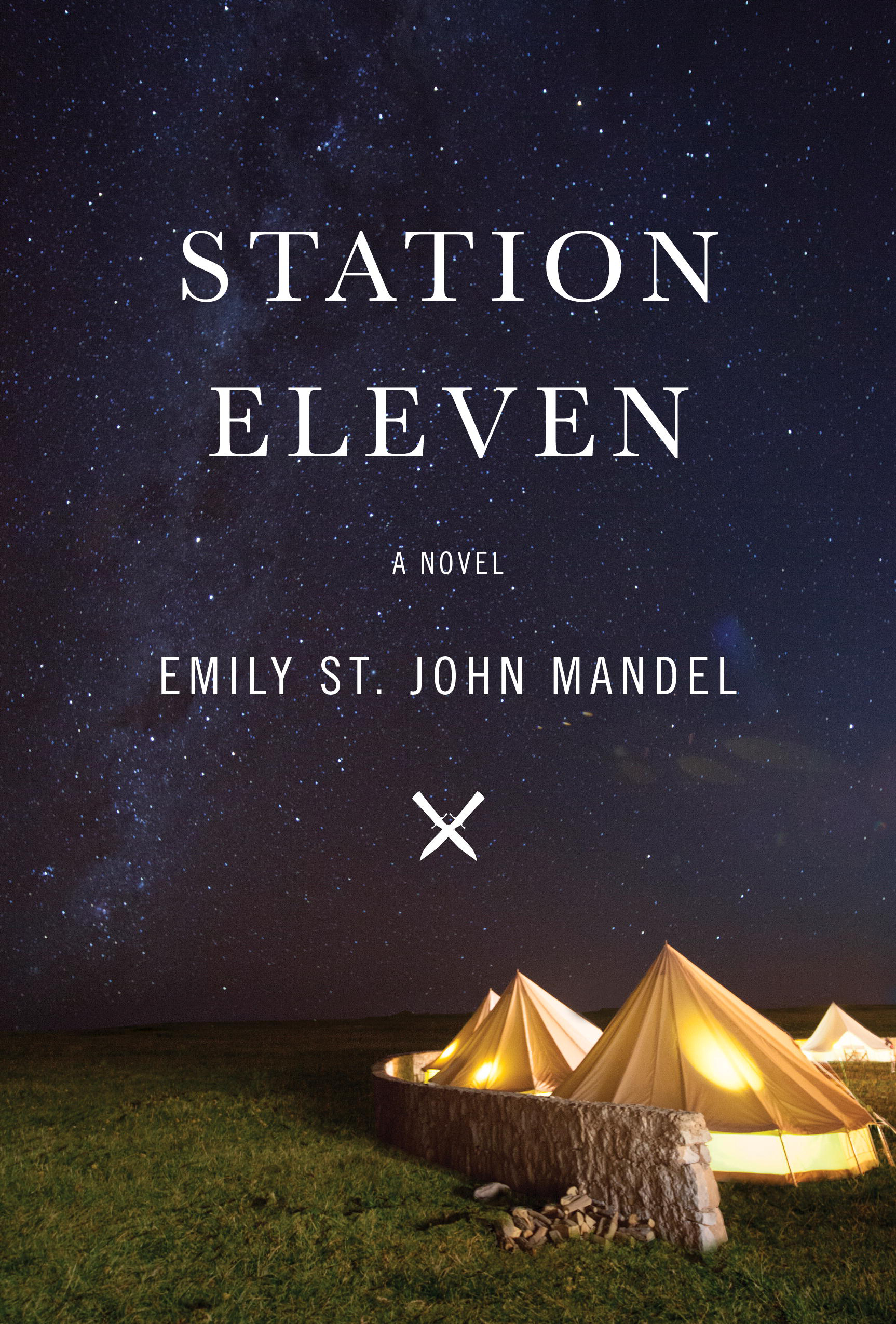First-Year Class Engages with Post-Apocalyptic Novel in Common Reading Experience

Station Eleven by Emily St. John Mandel was chosen as this year’s Common Reading title for the Class of 2021
By Thea Toocheck, Contributing Writer
What happens when humanity has to start from scratch? Station Eleven is Emily St. John Mandel’s fourth novel and this year’s choice for the first-year common reading, a program designed to give incoming students a chance to connect through a novel’s themes and messages.
The novel begins the night the Georgia Flu, an epidemic with a 99 percent mortality rate, hits Toronto. Within weeks, most of the world’s population is dead, but 20 years later, the Traveling Symphony is keeping Shakespeare and music alive as they perform at the scattered settlements of survivors. Mandel traces the twists of fate that connect the characters through time and space, and on Tuesday, September 12, Mandel came to Gettysburg for a lecture on the novel.
To begin, she thanked her audience for reading her book, acknowledging that she was aware the students had to read it, though some probably had not, statements that were received with chuckles from the audience. Indeed, throughout her speech, her rather dry sense of humor and good-naturedness were apparent, as was her fascination with what makes us human. She recounted multiple anecdotes that captivate her, including one about a secret library in war-torn Damascus that reminded her of people’s “essential humanity” and another about Captain George Vancouver and his discovery of smallpox-ravaged natives of British Columbia that shows “the awful randomness” and fear of disease. Both of these themes are apparent in her novel.
Mandel mentioned in her speech that at its inception, she wanted to write a book that was different than the crime novels she had published previously; while she conceded that she did not want to be stuck in a crime novelist marketing category, she also longed to express her “awe at the extraordinary level of technology around us” and draw attention to the way society takes things like this technology for granted. In addition, she wanted to ask what we would miss, hold onto, or long to recreate “if all the trappings of civilization fell away.”
Station Eleven heralds the fourth year of the first-year common reading program. In this program, a book is mailed to all incoming students, who are encouraged to read the book over the summer in preparation for the author’s visit and small group discussions in the fall. According to Musselman Library’s website, the goals of the program are to “provide a common intellectual experience for first-year students, foster a sense of community among first-year students, faculty and staff, [and] promote dialogue across disciplines on themes related to diversity, equity and inclusion, and internationalization.”
According to Keira Kant, Associate Dean of College Life, “the books are chosen by a group of students, faculty and staff who bring suggested titles for review. A couple of people read a few titles and then the group shares perspectives of the book – the accessibility, the writing style, the genre, the themes, etc. The group comes to a consensus for several books and then the whole group reads the remaining three or four books. Other considerations include author availability and cost, other potential programming ideas, current issues in society, etc.”
Erin Harten, a sophomore who was on the committee that chose Station Eleven, supported this year’s choice because “Station Eleven takes a unique look at a post-apocalyptic world by showing what really matters when you seem to have nothing. This book worked well for the first-year reading program as it showed how in a time of struggle, differences between people are no longer of importance. We felt many students would be able to relate to aspects of the novel and find hope in the changing world around them.”
Several students agreed. First-year student Lexie Bourne liked the image of the caravan traveling around spreading happiness and hope, and enjoyed the inclusion of the Star Trek quote, “Because survival is insufficient.” Michael Schuler found the writing style “really interesting because it kept the reader engaged throughout – I liked that it kept flashing forward and backward.”
Others, however, found the switches in time and Mandel’s distinctive writing style confusing. “I thought the premise of the book was very interesting, but I thought the writing style was very passive … I was never really able to get into it; it took me a very long time to finish the story,” said first-year student Lauren Sherman. Rebecca Hotz added, “I found the novel to be very formulaic; the [post-apocalyptic] genre has been done to death at this point.” Still other students found the beginning dry enough to decide not to finish the book, while some did not even start it.
However, Kant thought the novel was useful as “a way to look at humanity and what makes us human in the face of having to start over.” Indeed, Mandel stressed the human desire to keep what is best about the world even as we long to begin anew. In today’s loud, busy world, she believes that everyone is searching for a sense of peace even as they imagine the world is ending. While this may be a reflection of the anxious times in which we are living, she stated throughout history people have always believed they are at the end of the world. And, in fact, we are, Mandel insisted: it is always the end of the world. But it is also always the beginning of a new one, “appearing,” she said, “too quietly, too subtly to see except in retrospect.”
